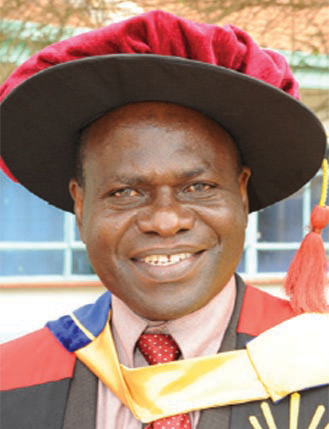Founding Vice-Chancellor
Mount Kenya University is a non-profit making institution of higher learning licensed by the Commission for University Education.
The University is a member of the Inter University Council of East Africa and the Association of Commonwealth Universities.
The University has a strong foundation, built of competent faculty and adequate learning and research infrastructure. It has established a footprint in most counties in Kenya, and in Kigali, Rwanda and Hargeisa, Somaliland.
The Board of Trustees, under the stewardship of Prof. Simon N. Gicharu recognises that investment in science and technology is critical in producing graduates who are generators of knowledge that is utilizable in development of technologies required for socio-economic development.
In pursuance of the university master plan and strategic plan, the University Management is committed to continuous expansion of academic resources such as teaching facilities, library facilities and human resource among others.

Prof. Stanley Waudo, Ph.D, Mount Kenya University Founding Vice-Chancellor
The University Management will continue to aggressively implement the University 2008-2018 strategic plan priority development areas listed below:
- Expansion of academic programmes
- Expansion of physical facilities
- Establishment of academic linkages
- Establishment of centres and campuses
- Development of teaching and research capacity
- Development of community outreach programmes, and
- Development of student support systems.
The Board is committed to ensuring that the university has adequate academic resources to support the university programmes. The university governance and management embraces the principle of broad participation in the management of university operations.
Since the inception of the University on 30th May 2008, the university has made significant achievements. Besides, the certificate and diploma programmes that the university took over from its precursor, Thika Institute of Technology, the University in consultation with regulatory bodies such as Commission for University Education, Pharmacy and poisons Board, Kenya Medical Practitioners and Dentist Board, Kenya Nutritionists and Dieticians Institute, Clinical Officers Council of Kenya, Kenya Medical Laboratory Technicians and Technologist Board, Medical Scientific Officers of Kenya and Teachers Service Commission and other relevant stakeholders continues to diversify its degree programmes.
The University endeavours to equip its students with skills, knowledge, expertise, values and attitude that will enable its graduates to be responsible citizen who can play a constructive role and serve the society with the desire to finding solutions to socio-economic problems.
The university has policies that promote quality control and assurance in the processes of student admission, staff recruitment, teaching, learning, examination and governance.
The University has strategies to ensure relevance and quality of academic programmes. The strategies include stakeholders’ participation in curriculum development and implementation, implementation of curricula in accordance with stipulations set out in international quality assurance standards and creation of synergetic partnerships that foster pooling and sharing of academic resources, exchange of information and adoption of best practices among others.
The university continues to develop structures and systems that promote development of competitive advantages in teaching, research and provision of service.
In recognition of research as a key component of the university mission, the university has a Vice-Chancellor’s research grant. It also has established a Directorate of Research and Development to coordinate all activities and matters related to research. The university publishes journals and continues to expand the list of journals for dissemination of research findings.











